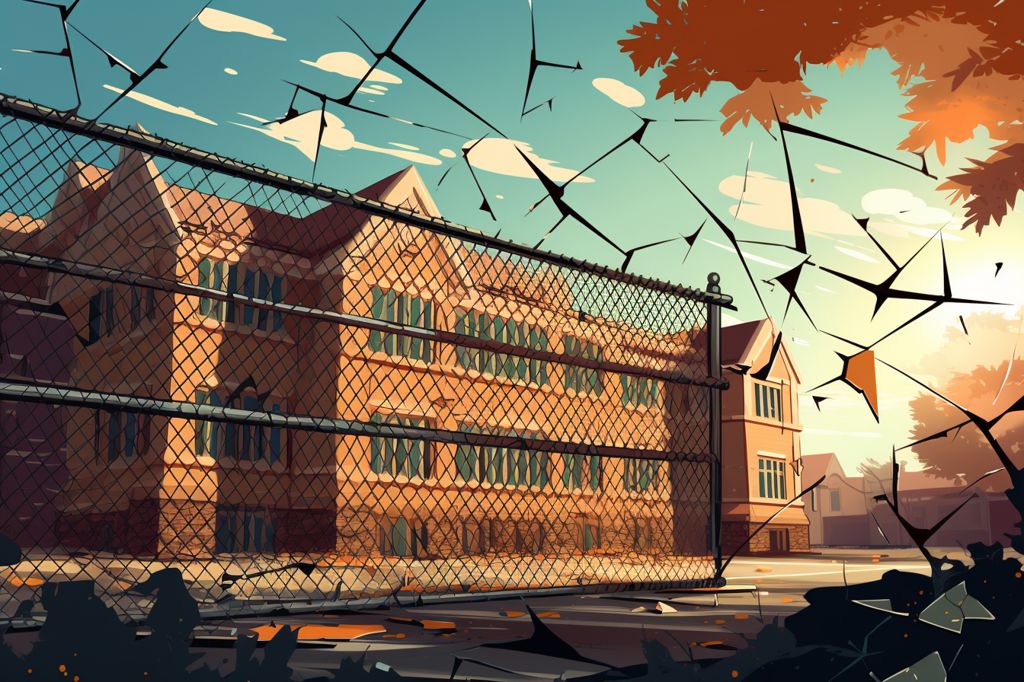Subtitle: Examining the Persistent Problem and Its Negative Effects on Students’ Growth and Development
The Western Cape province is facing a persistent problem of criminal activities targeting educational institutions. Despite government efforts to strengthen security measures, schools continue to be victims of vandalism, burglary, and theft. This not only affects the financial stability of the schools but also disrupts the education of students.
The Rise of Crime in Western Cape Schools:
During the June/July holidays, 38 schools reported incidents of criminal activity, including theft and vandalism. Although this marks a decline from the previous year, the situation remains concerning, particularly in metro education districts. The stolen items range from water pipes, windows, cables, computers, fencing, fire safety equipment, stationery, security gates, and more. The financial burden of repairing and replacing these items is substantial and affects the crucial objective of educating learners.
The Impact of Crime on Education:
The recent theft of water pipes at Crystal High School is an example of how criminal activity disrupts education. The subsequent flooding of the school led to its temporary closure, affecting an entire group of students. Although the school managed to accommodate the affected learners elsewhere, their educational experience was unavoidably impacted. The importance of uninterrupted education is crucial, especially as the Western Cape Government focuses on providing extra classes to get students #BackOnTrack.
Taking Action Against Crime:
The persistent problem of crimes targeting schools requires a combined effort from the public. The community must take action and report any information, no matter how insignificant it may seem, to the South African Police Services (SAPS). These criminals rely on the sale of stolen goods to thrive, and it is highly likely that individuals will be offered items pilfered from schools. By working together, we can help protect the sanctity of education and ensure that future generations enjoy a safe and nurturing learning environment.
Crime in Western Cape schools affects the growth and development of students. The financial burden of repairing and replacing stolen or vandalized items takes away from the crucial objective of educating learners. It is time for the community to take action and put an end to this criminal economy that is wreaking havoc on the education sector. By working together, we can ensure that future generations have access to a safe and nurturing learning environment.








